Sleep deprivation refers to consistently getting too little high-quality sleep. In the UK, the sleep crisis has become even more pronounced since our last update. New research by the Sleep Charity found that nine in ten people are experiencing problems with their sleep due to issues such as sleep poverty and workplace stress, with 14 million Britons living with undiagnosed sleep disorders. Mental Health UK’s latest figures show that almost one in five adults in Britain do not meet the recommended 7–9 hours of sleep. When you pair these figures with the fact that three‑quarters of hybrid workers say that swapping long commutes for flexible working improves their sleep quality, it’s clear that our routines and environment play a huge role in how we rest. Sleep is a foundation of good health, so if you are struggling, it’s essential to understand why and what you can do to address the issue.
What causes sleep deprivation?
Can lifestyle habits cause sleep deprivation?
Many cases of sleep deprivation stem from the everyday choices we make. Staying up late to binge‐watch a show, scrolling through social media in bed or answering work emails just before lights out all add up. A 2025 study of more than 122,000 adults found that individuals who used electronic screens every night in the hour before bed slept nearly eight minutes less on workdays, went to bed almost twenty minutes later, and were 33 per cent more likely to report poor sleep quality compared with those who avoided screens.
Irregular sleep patterns also matter. Research from the UK Biobank showed that varying your bed and wake times by more than 30 minutes increases the risk of stroke, heart attack and heart failure by 26 per cent, even if you manage eight hours of sleep. Remote working habits can help or hinder; while some hybrid workers report better sleep because they spend less time commuting, working late into the night or keeping irregular hours can disrupt your body clock.
How does sleep hygiene contribute?
Sleep hygiene refers to the habits and environment that support or undermine your sleep. Mental Health UK reports that 25 per cent of adults say money worries keep them awake, while 26 per cent blame persistent concerns about Covid‑19. Poor routines – such as consuming caffeine or heavy meals late at night, exercising vigorously, or checking notifications on a phone – make it harder to wind down. Light exposure also plays a role: bright screens suppress the hormone melatonin, delaying sleep, and environmental light pollution can trick your body into staying alert. Sleeping in a room that is too hot or too cold can disturb your deep sleep, and an old or sagging mattress or pillow won’t support your spine, causing you to toss and turn.
Which medical conditions affect sleep quality?
Sometimes the root cause is a medical issue. The Sleep Charity estimates that 37 per cent of adults experience insomnia and around 2.5 million people in the UK live with obstructive sleep apnoea hypopnoea syndrome (OSAHS), yet 85 per cent of cases remain undiagnosed. Anxiety, depression, chronic pain and menopause can all play a part, as can respiratory allergies or conditions like restless legs syndrome. These disorders disrupt your sleep cycles and leave you feeling unrefreshed. If you suspect an underlying condition, speak to your doctor – there are effective treatments for many sleep disorders, and improving sleep often helps ease mental health symptoms too.
What are the effects of sleep deprivation?
Losing sleep doesn’t just make you yawn – it affects virtually every system in your body. Below are some of the key impacts that recent research highlights.
Mood and mental health
In the short term, a bad night’s sleep can leave you irritable or emotional. Chronically poor sleep, however, is linked to anxiety, depression and an inability to regulate your emotions. Mental Health UK notes that 66 per cent of adolescents say poor sleep negatively affects their mental health. Sleep deprivation creates a vicious cycle: feeling down makes it harder to fall asleep, and insufficient rest reduces your resilience against stress.
Cognitive performance
When you cut back on sleep, your brain cannot perform at its best. A review in the journal Neurosciences confirms that sleep deprivation leads to widespread changes in the brain that impair memory, attention, judgment, decision‑making and overall cognitive abilities. Scientists have shown that a reduction in rapid eye movement (REM) sleep and non‑REM deep sleep disrupts neurotransmitter release and interferes with memory consolidation in the hippocampus. In practical terms, this means you may struggle to concentrate, make mistakes at work or find it harder to learn new information when you are sleep‑deprived.
Physical health risks
The health impacts of persistent sleep deprivation are serious. Regularly sleeping fewer than seven hours has been associated with weakened immunity and a higher risk of infections. The Sleep Charity warns that chronic insomnia is linked to long‑term conditions such as diabetes and cardiovascular disease. The 2024 UK Biobank study mentioned earlier found that irregular sleep patterns – not just short sleep – were strongly associated with a higher risk of major cardiovascular events. High blood pressure and elevated blood sugar levels have both been observed in people who routinely get less sleep than recommended, increasing the risk of diabetes and heart disease. Hormonal imbalances from disrupted sleep can also stimulate hunger and cravings, making weight management more difficult. Together, these factors mean that sleep deprivation is more than an inconvenience – over time, it can shorten your life expectancy and diminish your quality of life.
How to tackle sleep deprivation
The good news is that improving your sleep is within reach. Building a consistent routine, creating a restful bedroom and addressing underlying issues can help you reclaim restorative rest.
Perfect your sleeping environment
Your bedroom should be a sanctuary for rest and relaxation. Start with your bed. A supportive mattress and pillow help your spine stay aligned and relieve pressure points. Consider upgrading to the newest version of our Hybrid Bamboo Pillow or the Bamboo Mattress Topper. These products blend responsive foam for lift with cushioning memory foam and breathable bamboo covers that wick away moisture, ensuring your body stays cool and supported throughout the night. If your mattress still has life in it but feels lumpy, a topper is an easy, affordable way to add an indulgent layer of comfort and support. Keep the room dark and quiet, and maintain a cool temperature around 18 °C – studies have shown that cooler bedrooms promote deeper sleep. Invest in blackout curtains or an eye mask if you live in a light‑polluted area.
Dial in the temperature
Temperature regulation plays a major role in sleep quality. Overheating can keep you awake, while being too cold can prevent you from falling into a deep sleep. Aim for a bedroom temperature of about 18.5 °C. If you tend to overheat, opt for breathable bedding like our temperature-regulating bamboo duvet and moisture-wicking sheets. They help keep you cool in summer and cosy in winter. Taking a warm bath or shower about an hour before bed can also help by triggering a drop in core body temperature as you cool down, which makes you feel drowsy.
Establish a technology wind‑down and regular schedule
Your actions in the two hours before bed have a big impact on how easily you fall asleep. Limit screen exposure by switching off devices or using blue‑light filters. The 2025 study on screen use found that daily device use in the hour before bed was associated with later bedtimes and a 33% higher prevalence of poor sleep quality. Instead, try reading a book, practising gentle stretching or listening to relaxing music. Go to bed and wake up at the same time every day, including weekends, to train your internal clock. Aim to keep your bedtime and wake time within a 30‑minute window; doing so reduces your risk of cardiovascular events. Avoid large meals, alcohol, and caffeine in the evening, and finish vigorous exercise at least two hours before bedtime so your body has time to wind down.
Use lifestyle and work choices to your advantage
Modern life can make it challenging to get good sleep, but it also presents opportunities. If you have the option, take advantage of flexible working: a 2024 survey of UK hybrid workers found that 68 per cent reported better sleep quality when they split time between home and the office. Less time commuting means more time to wind down and exercise. Many people find that starting work later or cutting out late‑night emails helps them maintain a consistent sleep schedule. When you are away from screens, practise mindfulness or journaling to calm racing thoughts. Consider cognitive behavioural therapy for insomnia (CBT‑I) if worry or anxiety is keeping you up Only about a third of people with insomnia receive a diagnosis, yet targeted therapy can be very effective.
Seek support when needed
If you’ve tried adjusting your routine and still struggle to sleep, don’t hesitate to seek help. Speak with your GP about possible sleep disorders such as insomnia or sleep apnoea; many treatments are available. Mental Health UK recommends using sleep trackers or diaries to monitor your patterns; identifying triggers can help you and your healthcare provider develop a personalised plan. The Sleep Charity’s National Sleep Helpline provides free support and advice, and they are campaigning for improved sleep education and increased NHS resources.
Final thoughts
Sleep deprivation has far‑reaching effects on your health, affecting mood, brain function and even your heart. Recent data show that Britain’s sleep crisis is growing, with millions of people living with undiagnosed insomnia or sleep apnoea and almost one in five adults failing to get enough rest. Yet small, consistent changes in your lifestyle and environment can make a big difference. By prioritising regular bed and wake times, reducing screen use before bed, and creating a cool, comfortable sleep space, you give your mind and body the chance to repair and recharge. If you’re not ready to replace your entire mattress, products like our Bamboo Mattress Topper offer an easy upgrade to enhance support and cooling. Most importantly, listen to your body and seek support when needed – better sleep is not a luxury, it’s essential to your health and wellbeing.

![[MattressTopper] Panda London Memory Foam Bamboo Mattress Topper package box](http://pandalondon.com/cdn/shop/files/Bamboo_Mattress_Topper_Package_Box.webp?v=1742301823&width=1500)
![[MattressTopper] Panda London Memory Foam Bamboo Mattress Topper on the floor](http://pandalondon.com/cdn/shop/products/Panda-Memory-Foam-Bamboo-Mattress-Topper-Yoga-e1624045454555.jpg?v=1758795458&width=1000)
![[MattressTopper] Bamboo Mattress Topper Lifestyle Image with Memory Foam Pillows Product Page](http://pandalondon.com/cdn/shop/files/Bamboo_Mattress_Topper_Lifestyle_Image_with_Memory_Foam_Pillows_Product_Page.webp?v=1758795458&width=800)
![[MattressTopper] Bamboo Mattress Topper Lifestyle Image with Bamboo Pillows In the Garden room Product Page](http://pandalondon.com/cdn/shop/files/Bamboo_Mattress_Topper_Lifestyle_Image_with_Bamboo_Pillows_In_the_Garden_room_Product_Page.webp?v=1758795458&width=800)
![[MattressTopper] Panda London Memory Foam Bamboo Mattress Topper side](http://pandalondon.com/cdn/shop/files/Mattress_Topper_Isolated_-_resized.jpg?v=1758795458&width=800)
![[HybridMattressPro] Hybrid_Bamboo_Mattress_Pro_Product_Image_2026](http://pandalondon.com/cdn/shop/files/Hybrid_Bamboo_Mattress_Pro_Product_Image_2026.webp?v=1764944771&width=1000)
![[HybridMattressPro] Breathable Hybrid Bamboo Mattress](http://pandalondon.com/cdn/shop/products/Breathable-Hybrid-Bamboo-Mattress.jpg?v=1764944771&width=1920)
![[HybridMattressPro] Hybrid Bamboo Mattress Pro Cover Zip](http://pandalondon.com/cdn/shop/files/Hybrid_Bamboo_Mattress_Cover.jpg?v=1764944771&width=800)
![[HybridMattressPro] Panda Hybrid Bamboo Mattress Pro](http://pandalondon.com/cdn/shop/files/Hybrid_Bambo_Memory_Foam_Mattress_-_BioCell_Foam_x.jpg?v=1764944771&width=800)
![[HybridMattressPro] Couple on a Hybrid Bamboo Mattress Pro](http://pandalondon.com/cdn/shop/files/Hybrid_Bamboo_Mattress_Couple.jpg?v=1764944771&width=800)
![[CloudDuvet] Panda London The Cloud Bamboo Duvet Packaging](http://pandalondon.com/cdn/shop/products/Panda-London-The-Cloud-Bamboo-Duvet-Panda-Life-scaled_00a651ad-4ca3-4105-b520-12a94c1a4f71.jpg?v=1713363286&width=1920)
![[CloudDuvet] Panda London The Cloud Bamboo Duvet Rolled](http://pandalondon.com/cdn/shop/products/Duvet-Listing-Images03.jpg?v=1764079307&width=1000)
![[CloudDuvet] Panda London The Cloud Bamboo Duvet Girl Huggin a Duvet on the Bed](http://pandalondon.com/cdn/shop/files/Cloud_Bamboo_Duvet_-_Lady_Hugging_it_on_Bed_LifestyleImage.jpg?v=1764079307&width=1000)
![[CloudDuvet] Panda London The Cloud Bamboo Duvet Guy In the Air with Cloud Bamboo Duvet](http://pandalondon.com/cdn/shop/files/GuyonaHybridBambooMattresswithCloudDuvet.jpg?v=1764079307&width=2000)
![[CloudDuvet] Panda Cloud Duvet Winter on the bed lifestyle image](http://pandalondon.com/cdn/shop/files/Panda_Cloud_Duvet_Winter_on_the_Bed_Lifestyle-1_image.jpg?v=1764079307&width=1000)
![[BBWhite] White 100% Bamboo Bedding](http://pandalondon.com/cdn/shop/files/Pure_White_Full_Bed.webp?v=1719581797&width=1000)
![[BBWhite] White 100% Bamboo Bedding Texture](http://pandalondon.com/cdn/shop/files/100_Bamboo_Bedding_-_Pure_White_-_Close_Up_02.webp?v=1762879591&width=1000)
![[BBWhite] White 100% Bamboo Bedding Woman in bed sleeping](http://pandalondon.com/cdn/shop/files/100-Bamboo-Bedding-Set-Pure-White-BB.webp?v=1762879591&width=768)
![[BBWhite] White 100% Bamboo Bedding Woman Duvet cover buttons](http://pandalondon.com/cdn/shop/files/hand_and_buttons_1.webp?v=1762879591&width=1000)
![[BBWhite] White 100% Bamboo Bedding Woman in bed looking and smiling-](http://pandalondon.com/cdn/shop/files/SatonMadeBed-White100_BambooBedding-white_-_BB_SideShot1000x1000.webp?v=1762879591&width=980)
![[BBUrbanGrey] Urban Grey 100% Bamboo Bedding](http://pandalondon.com/cdn/shop/files/Made_Bed_-_Urban_Grey_-_Wide_Shot_2_1_1.webp?v=1762880019&width=1000)
![[BBUrbanGrey] Cloud Duvet Urban Grey 100% Bamboo Bedding Set](http://pandalondon.com/cdn/shop/files/Cloud_Duvet_-_Grey_-_Close_up_2.webp?v=1762880019&width=1000)
![[BBUrbanGrey] Urban Grey 100% Bamboo Bedding Set Woman sitting on the bed](http://pandalondon.com/cdn/shop/files/Sat_in_Bed_-_Grey_100__Bamboo_Bedding_-_Wide_Shot.webp?v=1762880019&width=1000)
![[BBUrbanGrey] Urban Grey 100% Bamboo Bedding Set Woman Duvet buttons Panda London](http://pandalondon.com/cdn/shop/files/hand_buttons_grey_bedding_1.webp?v=1762880019&width=1000)
![[BBUrbanGrey] Woman Sitting on the Bamboo Bedding with coffee](http://pandalondon.com/cdn/shop/files/SatonMadeBed-White100_BambooBedding-SideShot1000x1000.jpg?v=1762880019&width=1000)
![[BBNavyBlue] Deep Sea Navy Blue 100% Bamboo Bedding](http://pandalondon.com/cdn/shop/files/Made_Bed_-_Navy_-_Wide_Shot_3_copy.webp?v=1762879591&width=1000)
![[BBNavyBlue] Deep Sea Navy Blue 100% Bamboo Bedding Texture](http://pandalondon.com/cdn/shop/files/Cloud_Duvet_-_Navy_-_Close_up_2.webp?v=1762880019&width=1000)
![[BBNavyBlue] Deep Sea Navy Blue 100% Bamboo Bedding Woman Sitting on the bed](http://pandalondon.com/cdn/shop/files/Sat_Up_in_Bed_-_Navy_100__Bamboo_Bedding_-_Hands_on_Bed.webp?v=1762880019&width=1000)
![[BBNavyBlue] Deep Sea Navy Blue 100% Bamboo Bedding Duvet Cover Buttons](http://pandalondon.com/cdn/shop/files/Cloud_Duvet_Cover_Buttons_-_Deep_Sea_Navy.webp?v=1762880019&width=1000)
![[BBNavyBlue] Deep Sea Navy Blue 100% Bamboo Bedding Woman sitting on the bed looking away](http://pandalondon.com/cdn/shop/files/SatonMadeBed-White100_BambooBedding-SideShot1000x1000-001.webp?v=1762880019&width=980)
![[BBPink] Vintage Pink Blue 100% Bamboo Bedding](http://pandalondon.com/cdn/shop/files/Made_Bed_-_Pink_-_Wide_Shot_copy.webp?v=1762879591&width=1000)
![[BBPink] Vintage Pink Texture 100% Bamboo Bedding](http://pandalondon.com/cdn/shop/files/Cloud_Duvet_-_Pink_-_Close_up_2.webp?v=1762880019&width=1000)
![[BBPink] Vintage Pink Woman Sitting on the 100% Bamboo Bedding](http://pandalondon.com/cdn/shop/files/Sat_Up_in_Bed_-_Pink_-_Hands_on_Bed.webp?v=1762880019&width=1000)
![[BBPink] Vintage Pink Woman Sitting on the 100% Bamboo Bedding Duvet Cover](http://pandalondon.com/cdn/shop/files/Cloud_Duvet_Cover_Buttons_-_Vintage_Pink.webp?v=1762880019&width=1000)
![[BBPink] Vintage Pink Woman Sitting on the 100% Bamboo Bedding Woman looking far away](http://pandalondon.com/cdn/shop/files/SatonMadeBed-White100_BambooBedding-SideShot1000x1000-001_Vintage_Pink.webp?v=1762880019&width=980)
![[BBGrey] Light Grey 100% Bamboo Bedding](http://pandalondon.com/cdn/shop/files/Made_Bedding_in_Bedroom_-_Urban_Grey_-_Wide_Shot.webp?v=1762879591&width=1000)
![[BBGrey] Light Grey 100% Bamboo Bedding texture](http://pandalondon.com/cdn/shop/files/Texture17.webp?v=1762880019&width=1000)
![[BBGrey] Light Grey 100% Bamboo Bedding with Woman smiling](http://pandalondon.com/cdn/shop/files/Sat_Up_in_Bed_-_Grey_-_Hands_on_Bed.webp?v=1762880019&width=1000)
![[BBGrey] Light Grey 100% Bamboo Bedding with Duvet Cover buttons](http://pandalondon.com/cdn/shop/files/Cloud_Duvet_Cover_Buttons_-_Quiet_Grey.webp?v=1762880019&width=1000)
![[BBGrey] Light Grey 100% Bamboo Bedding with Woman smiling and sitting coffee](http://pandalondon.com/cdn/shop/files/SatonMadeBed-White100_BambooBedding-SideShot1000x1000-002-_Grey.webp?v=1762880019&width=980)
 Hybrid Bambuskissen
Hybrid Bambuskissen Memory Foam Bambuskissen
Memory Foam Bambuskissen Memory Foam Bambuskissen für Kinder
Memory Foam Bambuskissen für Kinder Baby Memory Foam Bambuskissen
Baby Memory Foam Bambuskissen Panda Bettdecke Cloud
Panda Bettdecke Cloud Sommerbettdecke aus Bambus
Sommerbettdecke aus Bambus Kinder Cloud Bettdecke
Kinder Cloud Bettdecke

![[MemoryFoamPillow] Panda London Bamboo Memory Foam Pillow](http://pandalondon.com/cdn/shop/files/03_Memory_Foam_Bamboo_Pillow__alt01.jpg?v=1770077322&width=800)
![[MemoryFoamPillow] Panda London Bamboo Memory Foam Pillow girl hugging the pillow](http://pandalondon.com/cdn/shop/files/02_Memory_Foam_Bamboo_Pillow__alt02.jpg?v=1770077322&width=800)
![[MemoryFoamPillow] Panda London Bamboo Memory Foam Pillow on a Panda Topper](http://pandalondon.com/cdn/shop/files/Memory-Foam-Bamboo-Pillow-on-Bed-Topper-and-Adjustable-Straps-Shown-Lifestyle-Square-768x768_png.webp?v=1770077322&width=768)
![[MemoryFoamPillow] Panda London Bamboo Memory Foam Pillow Girl Holding Pillow Lifestyle](http://pandalondon.com/cdn/shop/files/01_Memory_Foam_Bamboo_Pillow__alt04.jpg?v=1770077322&width=800)
